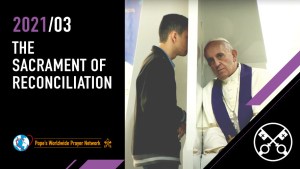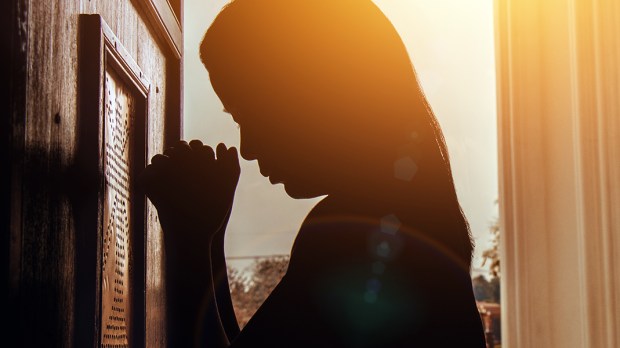“You know Spirituality 101, don’t you?” asked the priest.
I had just finished my confession to a wise monk at St. Benedict’s Abbey, and he hadn’t given me my penance yet.
“Um … no?” I said. “What do you mean?”
What followed was advice so concise and powerful that I brought it up in several conversations afterward. I discovered that students at Benedictine College were well aware of the advice — some had heard it more than once.
Good, I thought. It’s worth hearing over and over again. A student helped me reconstruct it, but I won’t get it perfectly. It starts like a 12-step program and some of it was in question-and-answer format. It goes like this.
First: Realize you are powerless over sin, said the monk.
You are powerless over sin. St. Paul says so in Romans 7, when he says, “For I do not do what I want, but I do the very thing I hate.”Not only are we powerless over sin — we can’t even call on the Holy Spirit without Christ, St. Paul says.
And what is the first sin? Why did Adam and Eve eat the apple and bring sin into the world? Pride.
And what is the opposite virtue to pride? Humility. St Bernard of Clairvaux and St. Augustine both say humility is the primary virtue.
So, who’s in charge of your life, you or God? God is.
So what do you have to let go of? Control.
Second: If you want to be holy, you have to ask to be holy, he continued.
The Devil told Eve, “You’ll be as smart as God is.” Eve bit the apple and Adam bit the apple and that’s the original sin. That’s what we inherit. It’s a tendency to believe we are self-sufficient, and we don’t need God.
We have to let go of control, and give God control. To do that is to have a relationship with Jesus.
He puts thoughts in our head and feelings in our heart. When we hear them, we know where they are coming from, don’t we? And then we try to follow through, listen, and do what he tells us to do and don’t do what he’s telling us not to do.
Third: Then, do corporal and spiritual works of mercy.
When you listen to God, what does he tell you to do? Generally, what God is telling us to do is in Matthew 25. He’s telling us to help people who need our help; in other words, practice the corporal and spiritual works of mercy.
Jesus said, “Whatever you do to the least of your brothers, you do to me.” That’s true. You really discover that in prison ministry, the monk said. Whatever you do for people, you’re helping Jesus.
And whenever you do something for Jesus, he pays back big dividends, 30, 60, a hundredfold.
Fourth: God pays you back with the Holy Spirit. With love.
What’s God’s currency? What does he pay you with? The monk answered for me:It’s love. God’s currency is love.
When we help someone who needs our help, we receive grace, which is God’s love.
Who and what is the Holy Spirit? The Holy Spirit is love, the love between the Father and the Son, and that is what you get from God.
And when you get the Holy Spirit, you grow in self-confidence, you grow in faith, you’re willing to take risks, you’re willing to reach out to people. You come alive, basically. And then you’re really living the faith.
You’re also happier. If you’re sad, if you’re angry, if you’re struggling, too focused on yourself, go help someone! Doesn’t it make you feel good to help others? So do it, he said.
And now for your penance …

Read more:
Pope’s March intention: That we might taste God’s mercy in Confession

